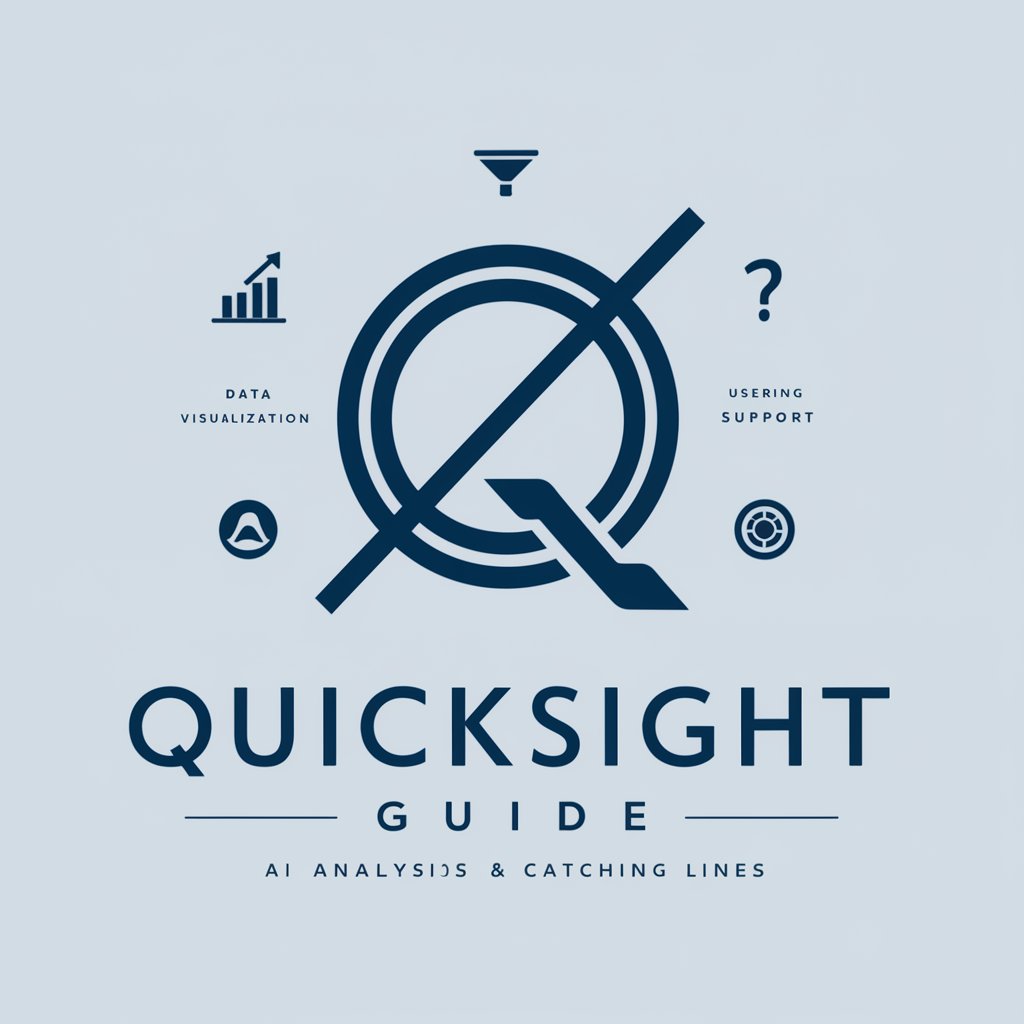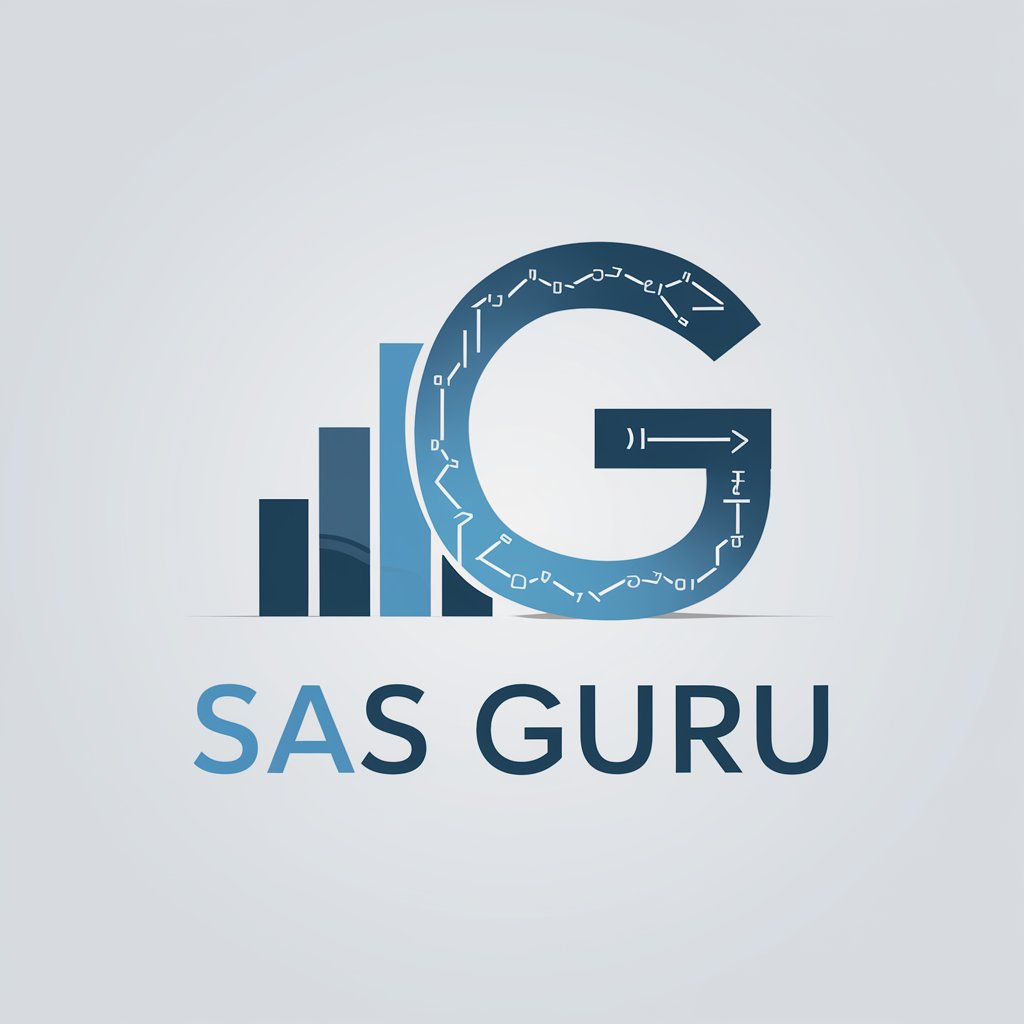
QuickSight Guide-AI QuickSight field assistant
AI-powered help for mastering QuickSight logic

Expert in Amazon QuickSight for data visualization and analytics guidance.
Explain how to create a dashboard in QuickSight.
What are the best practices for data visualization in QuickSight?
How to integrate QuickSight with other AWS services?
Troubleshoot a QuickSight dataset issue I'm facing.
Get Embed Code
Overview of QuickSight Guide
QuickSight GuideQuickSight Guide Overview is a specialized assistant designed to help users master Amazon QuickSight, particularly with calculated fields and data analysis logic. It functions as an on-demand expert offering tailored guidance on complex aspects of QuickSight, such as syntax creation, data modeling, and dashboard interactivity. The core purpose is to break down technical barriers, making QuickSight's advanced features more accessible and usable for both new and experienced users. For example, a financial analyst might struggle with creating a rolling 12-month average of sales. QuickSight Guide can not only provide the exact formula needed using `windowAvg` and `partition` functions but also explain how this impacts visuals and insights. Similarly, a data engineer trying to implement row-level security can receive step-by-step guidance on how to structure datasets, set permissions, and validate configurations.
Core Functionalities of QuickSight Guide
Calculated Field Formulation and TroublesQuickSight Guide Overviewhooting
Example
A marketing team wants to calculate customer retention rate using QuickSight. The guide can provide a DAX-style solution like `countIf(customer_id, event_type = 'repeat') / countIf(customer_id, event_type = 'new')` and walk the user through validating the logic across filtered visuals.
Scenario
This is particularly useful when building complex KPI dashboards where aggregated and conditional metrics need to be accurately reflected across visuals with filters and parameters.
Interactive Dashboard Design Support
Example
A product manager wants to create a dashboard with a drop-down filter to switch between revenue, cost, and profit metrics. The guide can explain how to use parameters and calculated fields to make a single visual respond dynamically.
Scenario
Ideal in executive reporting dashboards where space is limited but interactivity is key, allowing users to toggle between metrics instead of viewing separate visuals.
Advanced Analysis Features and Optimization
Example
An analyst needs to implement forecasting using QuickSight ML Insights. The guide explains how to enable forecasting, choose the right target measure, and interpret the confidence bands.
Scenario
Essential for operational teams that rely on predictive metrics (e.g., sales forecasting, churn prediction) and need guidance integrating them into daily dashboards.
Target User Groups for QuickSight Guide
Data Analysts and Business Intelligence Developers
These users often need precise control over data transformation and visual presentation. QuickSight Guide supports them by simplifying calculated fields, helping debug logic errors, and offering best practices for dynamic dashboards. It enhances their productivity and ensures data stories are both accurate and compelling.
Non-Technical Business Users (e.g., Product Managers, Sales Leaders)
While not fluent in SQL or scripting, these users benefit from QuickSight Guide’s ability to translate business needs into technical solutions. Whether they’re tracking KPIs or segmenting performance data, the guide helps them make sense of visualizations and interact with data more meaningfully.
How to Use QuickSight Guide Effectively
1. Visit the Platform
Go toQuickSight Guide Details aichatonline.org to access QuickSight Guide instantly. No login or ChatGPT Plus subscription is required to begin your free trial.
2. Prepare Your QuickSight Context
Have your QuickSight dashboard, datasets, and specific calculated field goals ready. Understanding your schema and business question will help you get more precise guidance.
3. Ask Specific Questions
Input your question with as much detail as possible. For example, instead of 'How do I calculate growth?', ask 'How can I create a calculated field to show YoY growth for a sales metric grouped by region in QuickSight?'
4. Review and Iterate
Review the response thoroughly, test it in QuickSight, and feel free to refine your question for deeper help or alternative methods. Follow-up queries help refine solutions.
5. Apply Tips and Best Practices
Try other advanced and practical GPTs
TJ. Ementa e Acórdão
AI-powered drafting of Brazilian court rulings.

Suno ai - /chirp - Music Prompt maker V3
AI-powered lyrics and music prompts for Suno artists

Typebot GPT
AI-powered assistant for smart Typebot flows

JavaScript Engineer GPT
AI-powered JavaScript solutions, instantly explained.

MirrorArt
AI-powered image recreation with stunning fidelity

Abogado Peruano GPT
AI-powered legal intelligence for Peru

Accounting Specialist+
AI‑Driven Accounting: Fast, Accurate, Insightful

口Tiktok Viral Script | Short video Script
AI-powered short video script generator

Curriculum Design
AI-powered curriculum design for educators.

ベテランリライター(脚本)
AI-powered Japanese script rewriter for YouTube narration

Windows CMD Expert
AI-powered command prompt solutions for Windows

✏️All-around Writer (Professional Version)
AI-powered writing, planned to perfection

- Data Analysis
- Business Insights
- Report Automation
- KPI Tracking
- Sales Metrics
Common Questions About QuickSight Guide
What exactly is QuickSight Guide?
QuickSight Guide is a specialized AI assistant designed to help users navigate and master Amazon QuickSight, particularly focusing on calculated fields, formulas, and dashboard logic. It offers tailored, expert-level support in plain language.
Can QuickSight Guide help with complex calculated fields?
Absolutely. It excels at breaking down and building advanced calculated fields using functions like `ifElse`, `sumOver`, `denseRank`, and more. It provides syntax, use cases, and troubleshooting for each scenario.
Is this tool only for QuickSight experts?
No. QuickSight Guide is useful for all levels—from beginners needing step-by-step logic to experienced users refining their advanced analyses. It adapts explanations based on your familiarity with the tool.
Can it assist with optimizing dashboards for performance?
Yes. It provides insights on efficient use of calculated fields, aggregation strategies, and best practices to avoid performance issues in large datasets or complex visuals.
Does it support business-specific use cases?
Yes. Whether you're tracking KPIs, generating custom cohorts, or implementing conditional formatting based on business rules, QuickSight Guide tailors responses to your domain-specific logic.






